
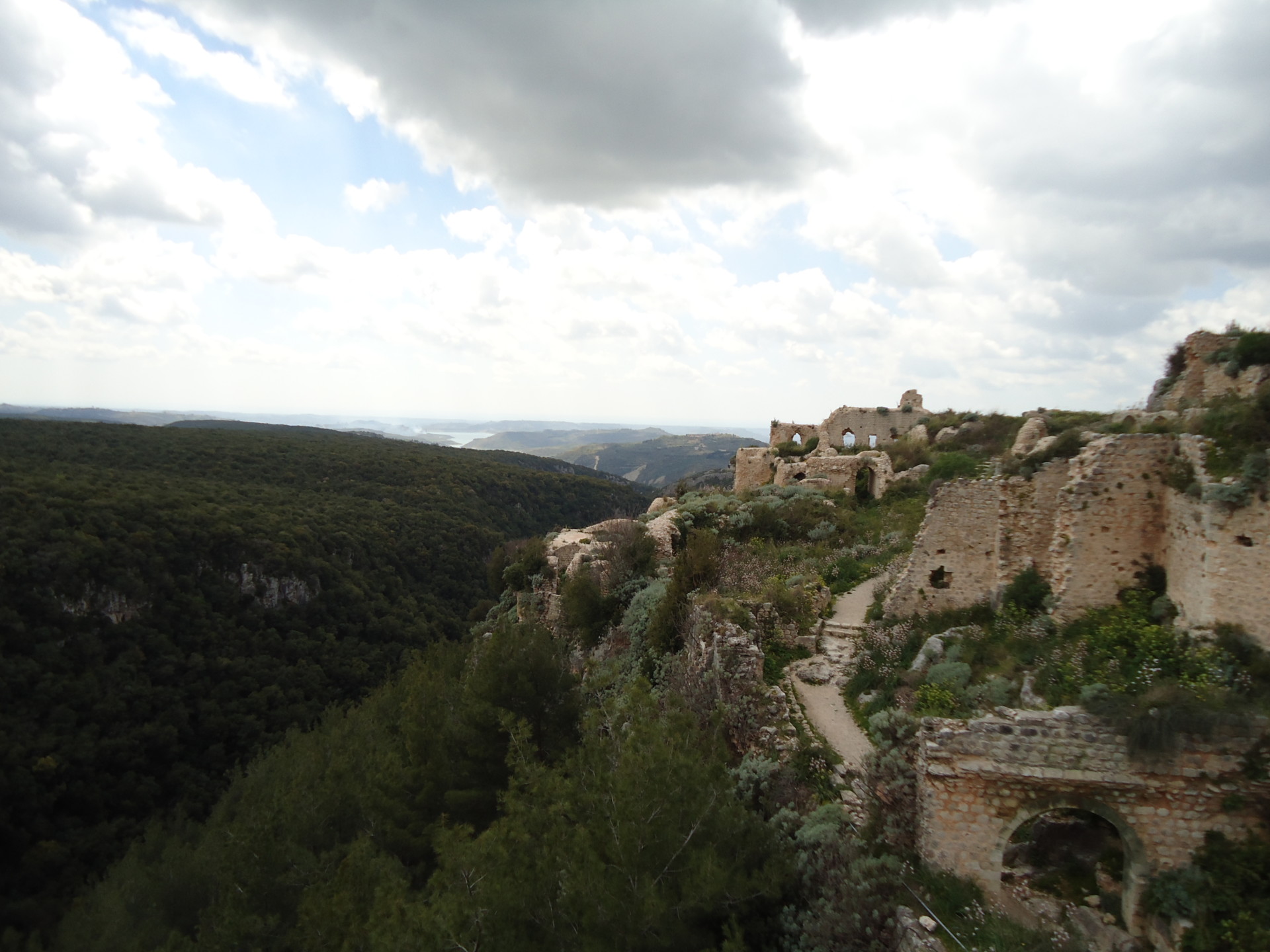
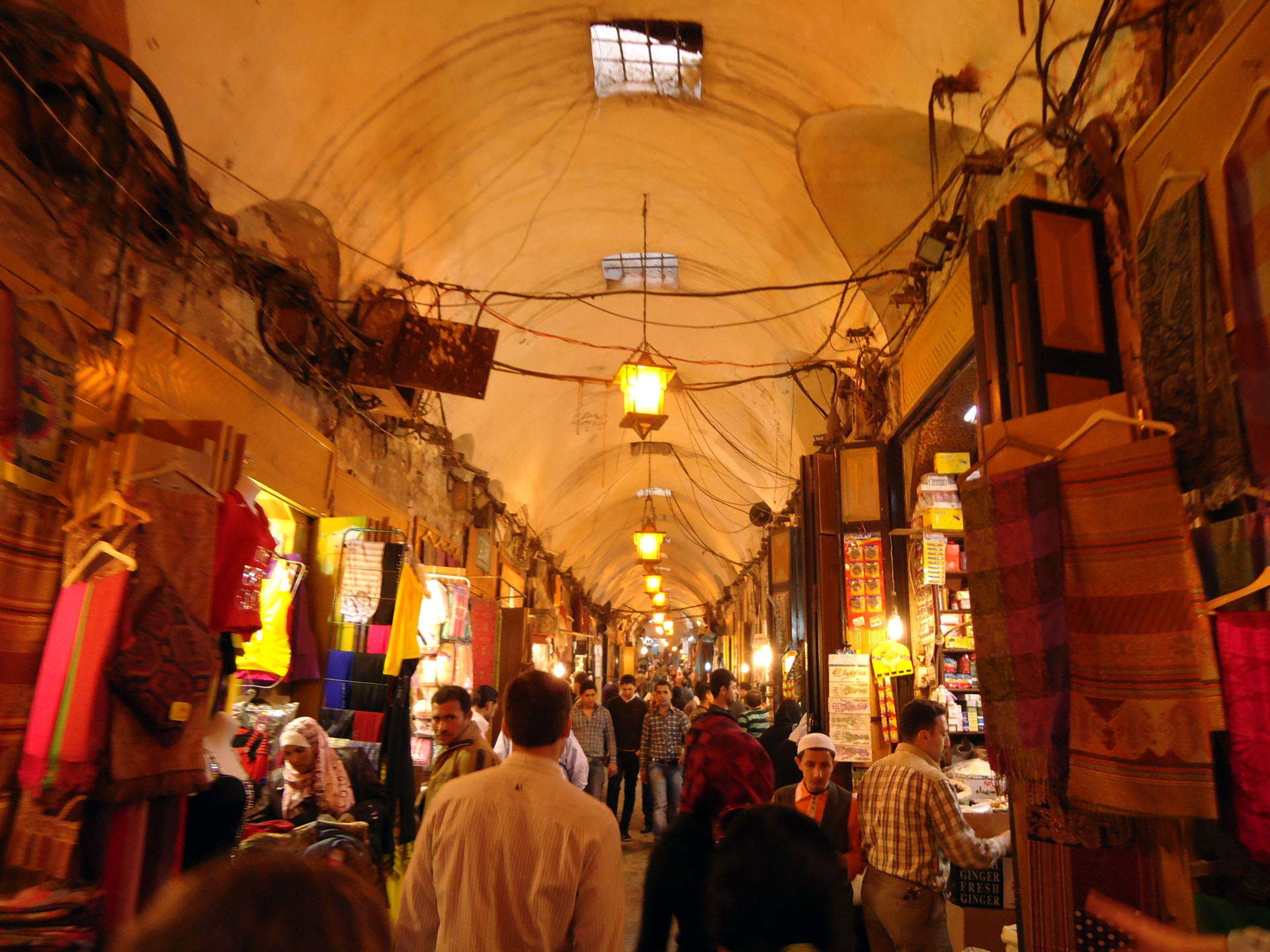
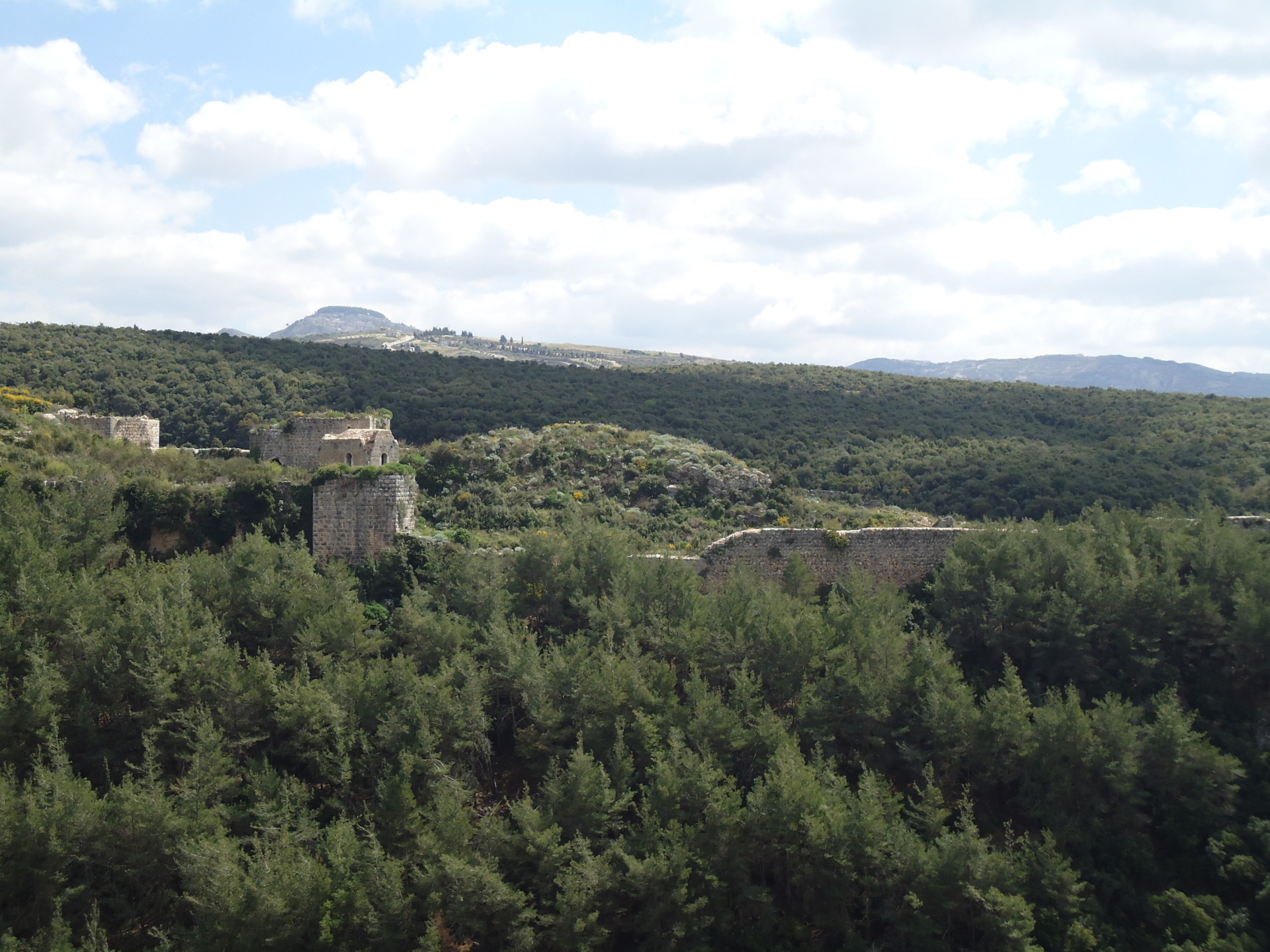
Present at the Creation of the Syrian Revolution
An American language student recounts studying and fraternizing with Syrians on the cusp of their uprising
I flew my last leg into Aleppo via a direct flight from Istanbul, having departed initially from Washington, D.C. It was Jan. 25, and I traveled on my Canadian passport. Although relations between Syria and the U.S. had begun to thaw, it still seemed best to enter the country as a Canadian, just in case. It was 2 a.m. when my program director picked me up from the airport, and I only have a vague recollection of driving along the airport road leading into the city center and then onto Aleppo University. Our program was based in the Dar Diyafeh, or the Hospitality House, which was the dorm on campus reserved for the international students. There were students from Japan, Russia, Iran, and now us clueless Americans. I say clueless because I think we were uniquely unprepared for the kind of environment we had opted to live in for an entire semester.
I was one of the first students from the program to arrive, and I woke up the next day to hear some of the Syrian students, who would live in the dorm with us, gathered in the common room. Most of them were from the neighboring province of Idlib, as the majority of students who lived in the dorms were from outside Aleppo while students from Aleppo lived at home and commuted to school.
To cultivate relationships between the Americans in the language program and our Syrian dorm mates, we were asked to pair up in teams and go on a scavenger hunt around the city. This would also provide an opportunity to learn the layout of Aleppo’s city center. I knew enough about Syria’s history from my studies at university to know that the country was ruled by one family in a decades-long dictatorship. But knowing what a place is and experiencing it for yourself are two different things.
Among the items on our scavenger list was to take a photo with Bashar al-Assad and his father, Hafez al-Assad — or rather, whatever posters or statues of the two leaders we could find within the city. At the time, there were many posters of Bashar in military fatigues wearing Ray Ban-style sunglasses. My Syrian dorm mates told me I should stand next to the poster of Bashar and take a photo, so I put my sunglasses on and made peace signs with my hands and smiled. My Syrian colleagues took the photo but visibly winced as they did so. They then pulled me aside and in a low voice explained that I should be careful when dealing with the image of Bashar or anyone from the Assad family. Making a mockery of the “fearless leader” would not be tolerated. My subsequent photo of me standing next to the statue of Hafez was more subdued.
After the first month of studying in Aleppo, it was clear that part of living and surviving under such a regime was about hiding your real identity, thoughts, and opinions. This was a suffocating feeling for a person who was used to living in an open society. And yet, even though my Syrian friends had spent their entire lives in this way, the Assad regime could not entirely stop people from thinking for themselves, analyzing their surroundings, or critically thinking about their country’s future. And so, little hints of dissent and dissatisfaction with the status quo would bubble to the surface in conversations I had with my friends.
Satellite TV was also available, and we would watch BBC Arabic in our common room, which at the time focused heavily on covering the revolutions in Egypt, Tunisia, and Libya. My Syrian friends assured me no such revolution could ever occur in Syria. “There will be a revolution in Saudi Arabia before we have one here,” they would say.
I would soon learn that in addition to learning a new culture, new language, and a new geography, it was important to build multiple personas or “masks” to survive. One mask was for public consumption, one was for interactions with our Syrian friends and colleagues, and one was between those of us who were students in the exchange program.
We soon learned that we were being watched.
Two of our Syrian dorm mates were members of the Baath Student Union and were placed in our program specifically to keep an eye on us. When going out in public, even just around Aleppo city, it was important to mind what we said and be careful about how we interacted with people. Our program had the blessing of the Governor of Aleppo, who made it clear to numerous layers of bureaucracy that it was important to “not harass the visiting Americans.” That didn’t mean, however, that our interactions would not have an adverse effect on our Syrian friends if we were not careful. The force of this implicit threat hit when our program director told us to stop helping our Syrian friends make Facebook accounts. From the untrained American perspective, we were merely providing them a tool that would allow us to keep in touch in the future. But from the perspective of the regime, providing social media access was dangerous and subversive.
Allowing Syrians to engage with non-Syrians in a country invigilated by omnipresent intelligence services was one thing. Allowing them to communicate virtually, from the privacy of their own homes, with us once we’d left this surveillance state was another — to say nothing of the danger to the regime in allowing Syrians to use social media to communicate with one another. Internet cafes were heavily monitored by the intelligence services. To use the computers, you had to provide your passport or national ID to the proprietor, who would write down your details, and then send a daily log of internet users to a local intelligence officer passing by those cafes every day to collect the information.
Everywhere I went, I saw tiny cracks in the Assadist edifice, which, within months of my time in Syria, would widen into major fissures.
One memorable moment came during a class trip to the Christian town of Maaloula, a mostly Greek Orthodox area, and the site of one of Syria’s oldest surviving monasteries where Aramaic, the language of Jesus, is still spoken. Some of my Syrian dorm mates who accompanied us asked me some questions about Christianity that I could not answer because I am Jewish. I told them I am of ahl al-kitab — the People of the Book, an Islamic reference to the other Abrahamic faiths — but not Christian. Most of them had never met a Jew before, and a flurry of questions followed. By and large, they were simply curious and wanted to take the opportunity to discuss the similarities or differences between Judaism and Islam. Other, more pointed questions were whether I had any family in Israel (I do not) and my thoughts about the Israeli-Palestinian conflict. As one friend would tell me later: “We were taught by the government to hate Israel from the first day of school. Even more, the way we are taught, we often conflate Judaism and Israel together, neither understanding or questioning where one begins and the other ends.”
Our language program had created a strange, grudgingly accepted open space within a closed information system, the one most Syrians inhabited. Nor was the information flow one-way. Our Syrian dorm mates opened their homes and lives to us and did their best to expose us to all aspects of Syrian culture.
On weekends, I was able to go with them back to their homes in Idlib province. I spent most of my time either in Idlib city or in villages located in the region known as Jabal Zawiyah, which would later play a pivotal role in expelling the Assad regime’s intelligence and military from the entire province. Idlib was a beautiful, rural, less densely populated province. Farmland and tiny villages dotted the landscape. The province was also home to one of the famous “dead cities” known as Serjilla, a Byzantine archeological site. Away from the crowded university campus, my Syrian friends were more relaxed and began to speak more openly about politics and how they saw their own futures. My male friends expressed serious concerns about their prospects for obtaining a job after university and being able to afford an apartment and the dowry required to eventually get married. The prospect of having to do military service after university was another source of stress.
Unemployment in Syria at the time was high, and a lack of affordable housing for an increasingly younger population was creating social pressures that had already begun to make the regime nervous. A whole new section of Idlib city was hastily being built in order to reduce housing costs and, so the regime hoped, fend off a tide of discontent among young adults. With thoughts of a post-university future came anxiety and the realization that the current system of governance created more problems than it solved. My friends questioned the system, not initially from a sense of wanting to overthrow it but because it did not provide them with a viable and meaningful future. They felt trapped.
When I asked one friend what the most frustrating part was about living under the current system, he told me it was its arbitrariness, which he reduced to three central grievances: 1) the presence of corruption in all aspects of Syrian life, for even the smallest thing, made getting anything done difficult for no good reason; 2) the sprawling and shadowy intelligence services created a climate of fear and paranoia such that you didn’t know if your neighbor was a spy or informant or if they might report you simply because they had a grudge against you; 3) the impossibility of knowing whether the rules of today would apply tomorrow. The caprice of totalitarianism was a feature, not a bug, and kept you too busy to think about anything else to challenge the system.
By the end of February 2011, some of my friends from Idlib had become more vocal in their opposition to the regime. What had been quiet murmurings had become strident criticisms.
During one weekend stay in Jabal Zawiyah, a friend explained to me that the people of Idlib had always had an independent streak: They had fought the French occupation after World War I and participated in the uprising against Hafez al-Assad in the 1980s, and the bitterness over how the regime dealt with their province continued. I learned that my friends from the rural parts of Idlib despised the regime and felt the neglect of their areas was purposeful. This contrasted with friends from Idlib city who, as part of the upper middle class, had no political gripes with the system and wanted stability above all.
In the stratification of Syrian society lay future restiveness: urban vs. rural, rich vs. poor, those with wasta (clout) and those without.
The day the first protests in Daraa broke out, we heard only brief news about “unrest” in the south of the country. Syriatel, the cellular communications company that most of the country used, had just provided free minutes and texting to everyone for the whole week, and suddenly, the network was jammed with people using their phones. State-run television only briefly mentioned an “incident” in the southern province, which seemed far away from Aleppo. When I asked my friends what was happening there, the answers were nonspecific and uninformed: “The people in Daraa are clans, they are always fighting.” “The Hourani are always running guns, it’s not a big deal.” “The Derawi are smugglers and move things into Jordan, it’s normal.” When I asked for specifics, most of my friends had little knowledge of the communal and political dynamics of the communities in the south.
I soon found myself on a bus with a friend from my graduate university who had come to Syria to visit me. We were headed from Aleppo to Latakia for spring break. It was Friday, March 25, the day that major protests took place in the city center of the coastal province and ancestral home of the Assad clan. As the bus arrived, I could see huge plumes of black smoke rising from the city center.
I asked a young man sitting next to us what was going on, and if we could enter. “There is a holiday today,” he said. “The city is closed!” I understood that this was the easiest explanation to give because explaining why the city was closed was risky. The young man told us the name of a hotel we could stay in, located at one of the main roundabouts in Latakia city but at the edge of what had become a closed security cordon. He was kind enough to take us directly there. Just down the street from the hotel, we could see a line of security forces in full riot gear blocking the road leading further into the city.
That night, a pro-regime rally took place along the road where people waved the Syrian flag and chanted Bashar al-Assad’s name. My friend and I had wandered down the block to have dinner, and afterwards we decided to walk around, watch the rally, and take photos. At this early stage in the revolution, we did not fully grasp the seriousness of what was happening. As we walked around the rally, we were approached by two plainclothes intelligence officers. They asked what we were doing and to see our IDs. I explained I was a student at Aleppo University and gave them my university ID, a document even more important for moving around Syria than my Canadian passport. They nodded and asked where we were staying, and after a brief consultation, they informed us it was not safe to be outside in the rally and that we should return to our hotel.
We did as we were told, but the rally continued until 3 a.m., as young men and women in cars drove through the roundabout all night blaring horns and chanting slogans.
The next day, we paid a taxi driver to take us around Latakia as the city center was still “closed.” We visited Salaheddine Castle, and then our driver suggested we visit the tomb of Hafez al-Assad in Qardaha. Not wanting to waste the day sitting in our hotel, we agreed to go. Despite being in the hinterland of the Assad clan, the villages we passed through were obviously poor — roads had not been updated or recently paved, electricity lines lay in a tangled mess of jury-rigging, houses were dilapidated. Then we arrived at the main road leading to Hafez’s tomb — a newly paved, double-wide pathway with proper signage and lampposts. As our taxi pulled up to a massive mausoleum, numerous security guards with AK-47s rushed out to greet us. The protests in Latakia had put everyone on edge. The guards informed us that the tomb was closed that day, but since we had made the trip there, we were welcome to take photos of the outside of the building and stay for some Nescafé. Drinking instant coffee with al-Assad’s mukhabarat, or intelligence officers, at the burial site of his father, was a strange experience at the time, but in hindsight seems like something out of a magical realist novel given what was only just beginning in Syria.
By this point it was late afternoon and time to return to the city. The taxi driver told us that if we wanted, he knew a great restaurant along the Cornish (the main road along the coastline in downtown Latakia) that served excellent seafood. Our plan was to take a bus that evening down to Tartus to meet up with some other classmates from the language program, and we asked our driver to take us to the bus station. However, by the time we left the restaurant, protesters had once again gathered on the streets, blocking our way. Our driver attempted to make a detour through part of the city to get us to the station, but streets had been blocked by garbage bins and piles of tires — shattered glass from numerous storefronts strewn everywhere.
Our driver told us it would be impossible to reach the station, and he would take us to another one just outside the city. Just then, a classmate called asking where we were. I explained we were still in Latakia city. “There are armored vehicles and security forces headed to the city now. You need to leave,” he said. He agreed to come in his car and get us from the bus station on the outskirts of the city.
As the sun began to dip and we drove down the coastal highway leading from Latakia to Tartus, a convoy of Soviet-era infantry vehicles rumbled up the other lane, headed toward where we’d just left, while at various points trucks carrying security forces disembarked and men in plainclothes (we would later learn these were the notorious shabiha thugs) lined up to receive machine guns.
Tartus was mostly quiet, but we were told that it wasn’t smart to loiter outside past dark. The hotel we stayed in was run by a family, the head of which spoke fluent English. I sat with him and explained what I had seen in Latakia. He told me that what was happening in Syria was an implosion of such great scale that I could not fathom. I asked how it would be different than the protest movements that were occurring in multiple countries across the region. “I have friends who have been waiting for this day,” he said. “They have weapons, hoping for a time when the regime will be weak enough for them to make their move. They did not forget what Hafez did in Hamah, and they will have their revenge.”
The hotel owner told me he had been working on obtaining visas to Canada for years and hoped to leave Syria as soon as possible with his family because he saw little hope that the situation unfolding would be resolved quickly or in a manner that would not result in catastrophe.
At the time, I still couldn’t imagine that the country would plunge into one of the most horrific conflicts of the 21st century or that it would damage or destroy almost every village, town, and city I had visited over the course of my stay in Syria. But I had never lived under an authoritarian regime, and I had no idea what such regimes were willing to do to hold onto power. “This family thinks of themselves as gods, ruling Syria forever, while the rest of us are their slaves,” a friend had told me. “I’m tired of being a slave.”
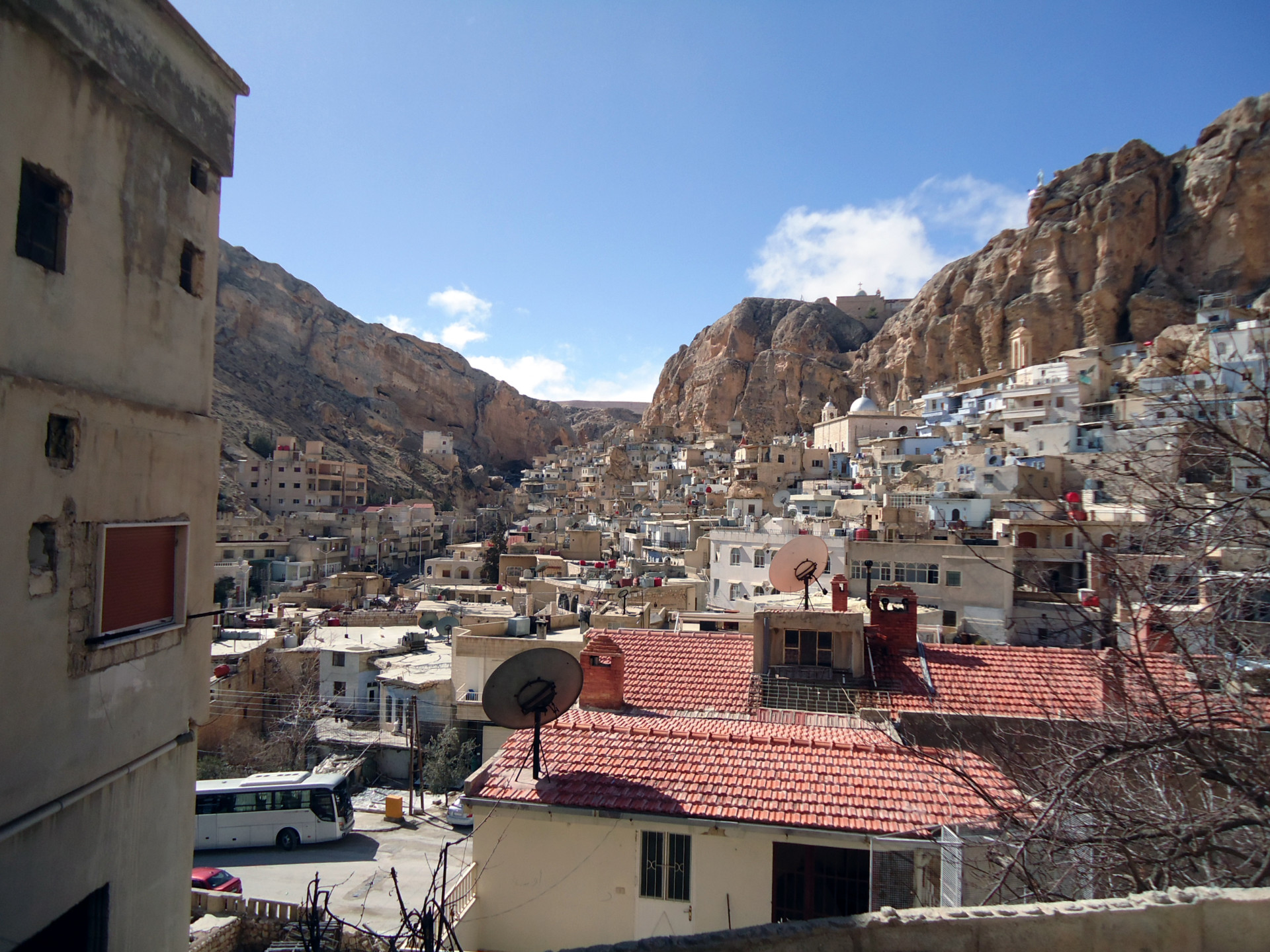
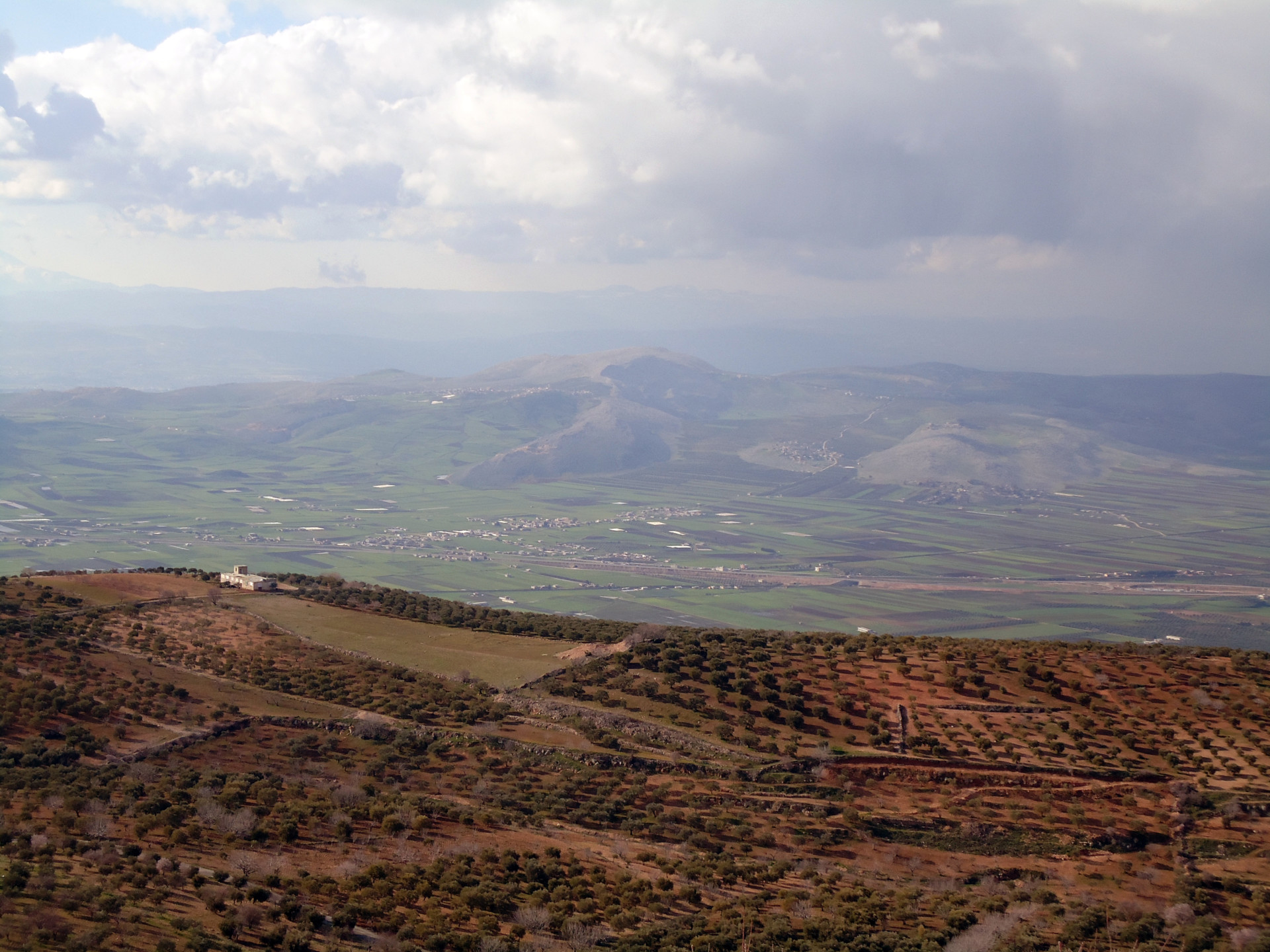
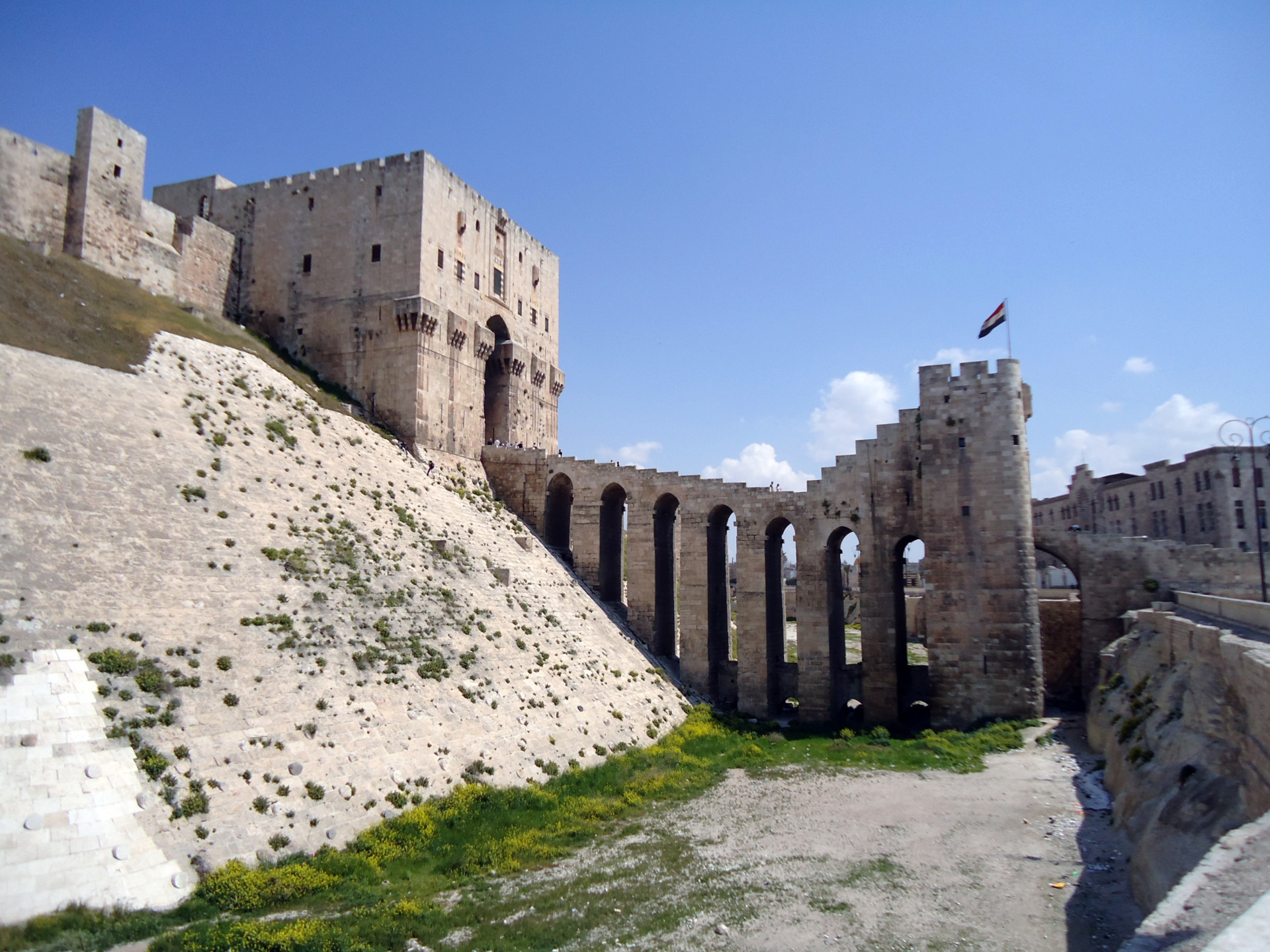
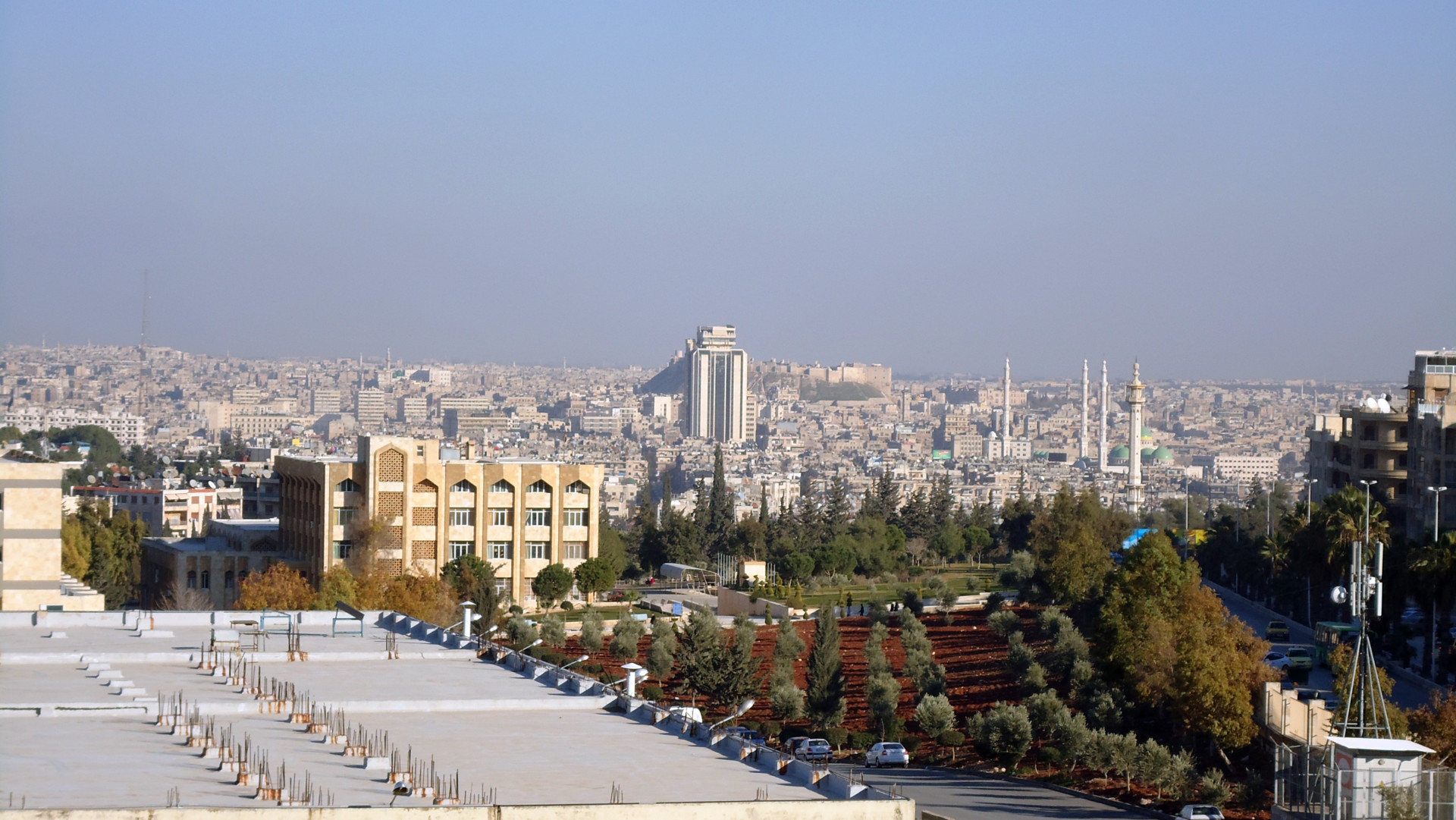
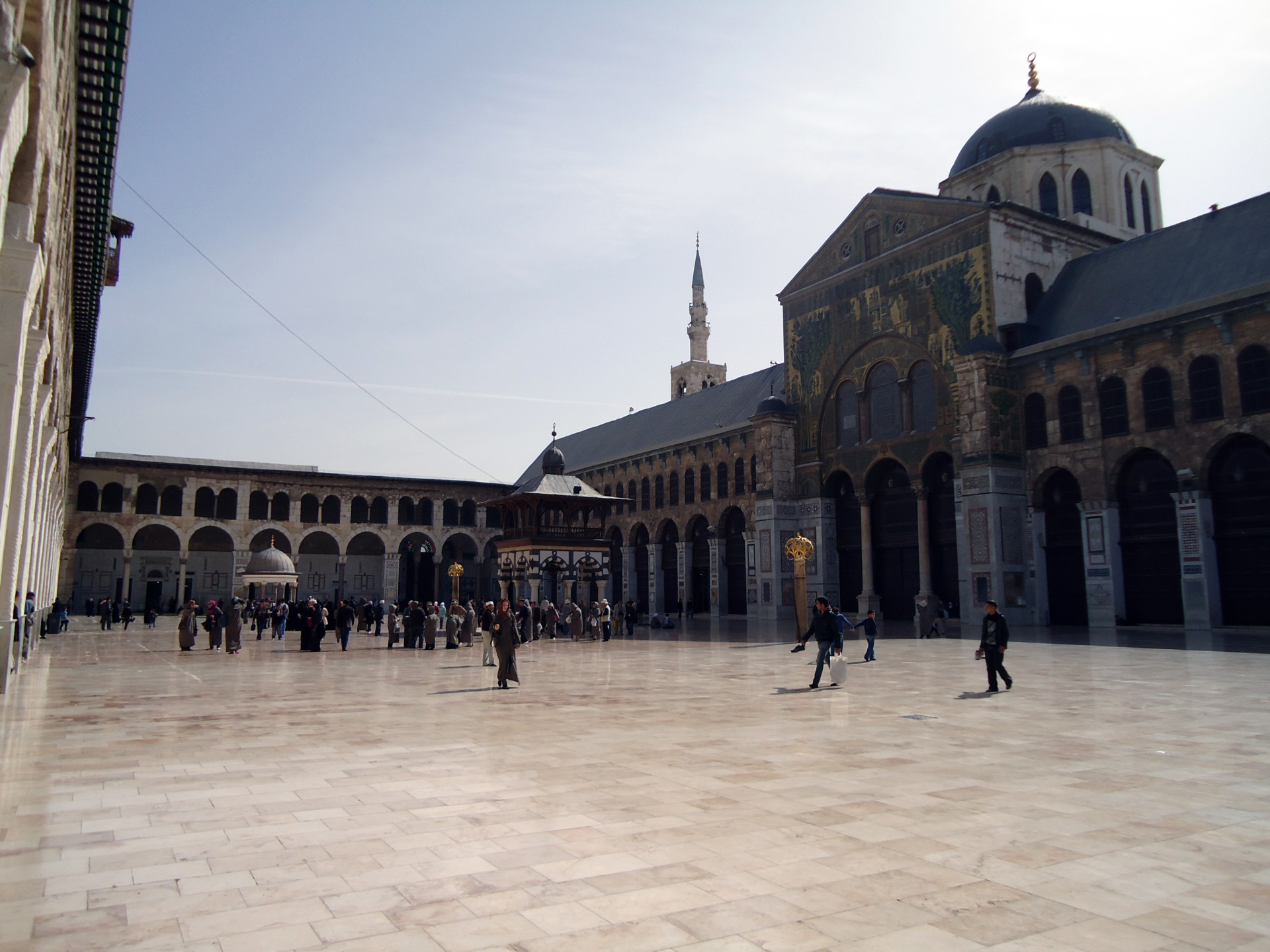
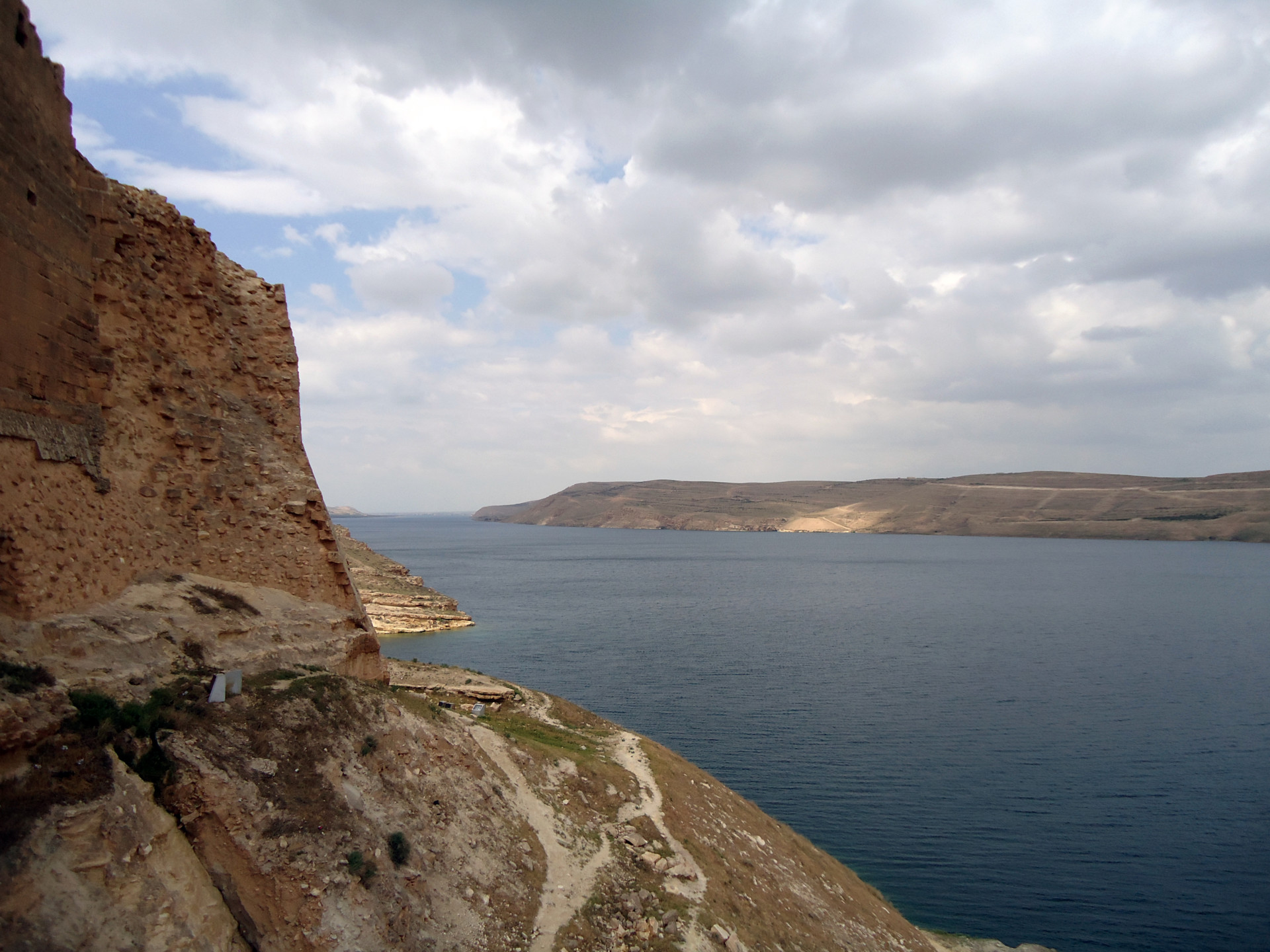
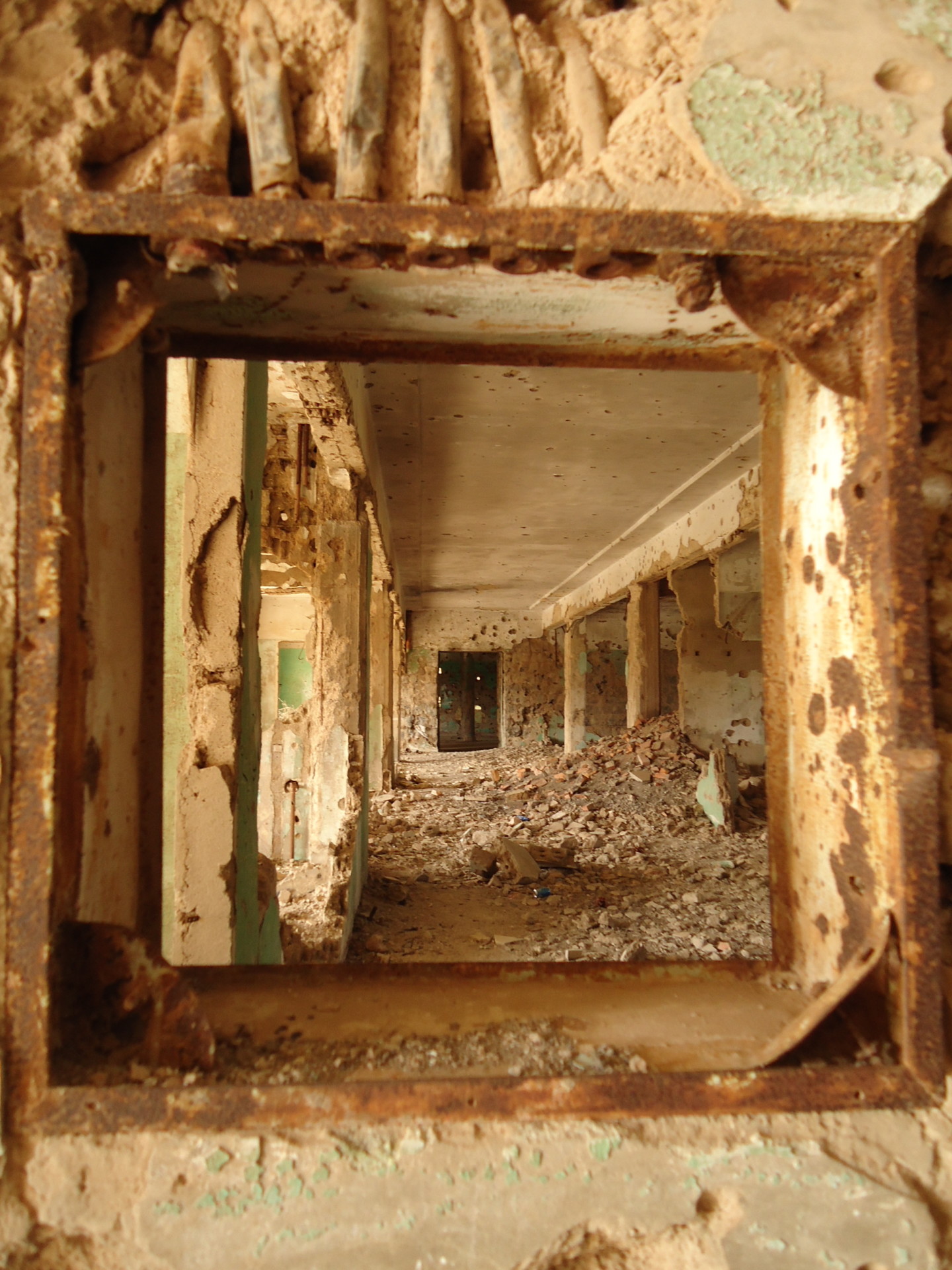
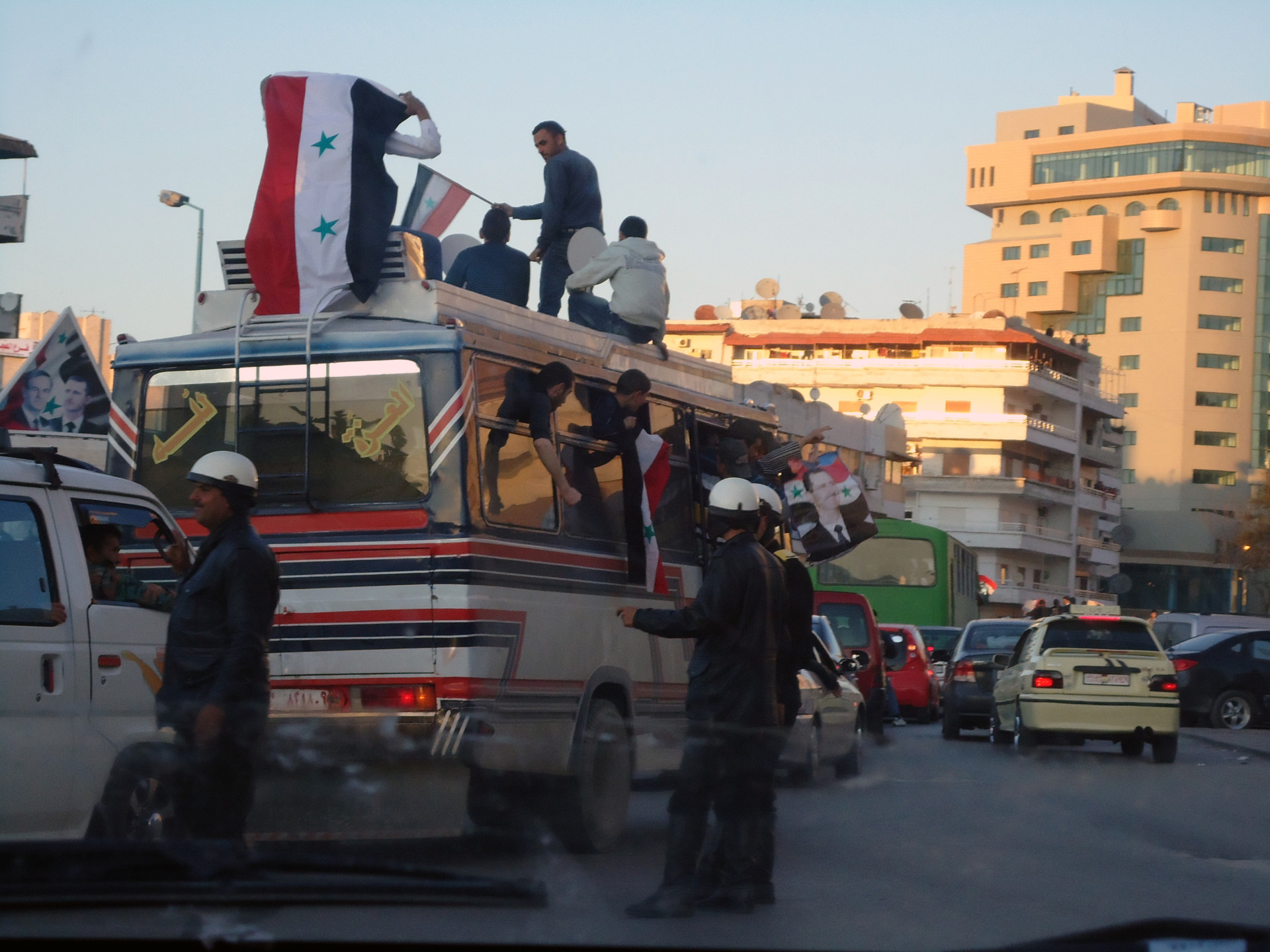
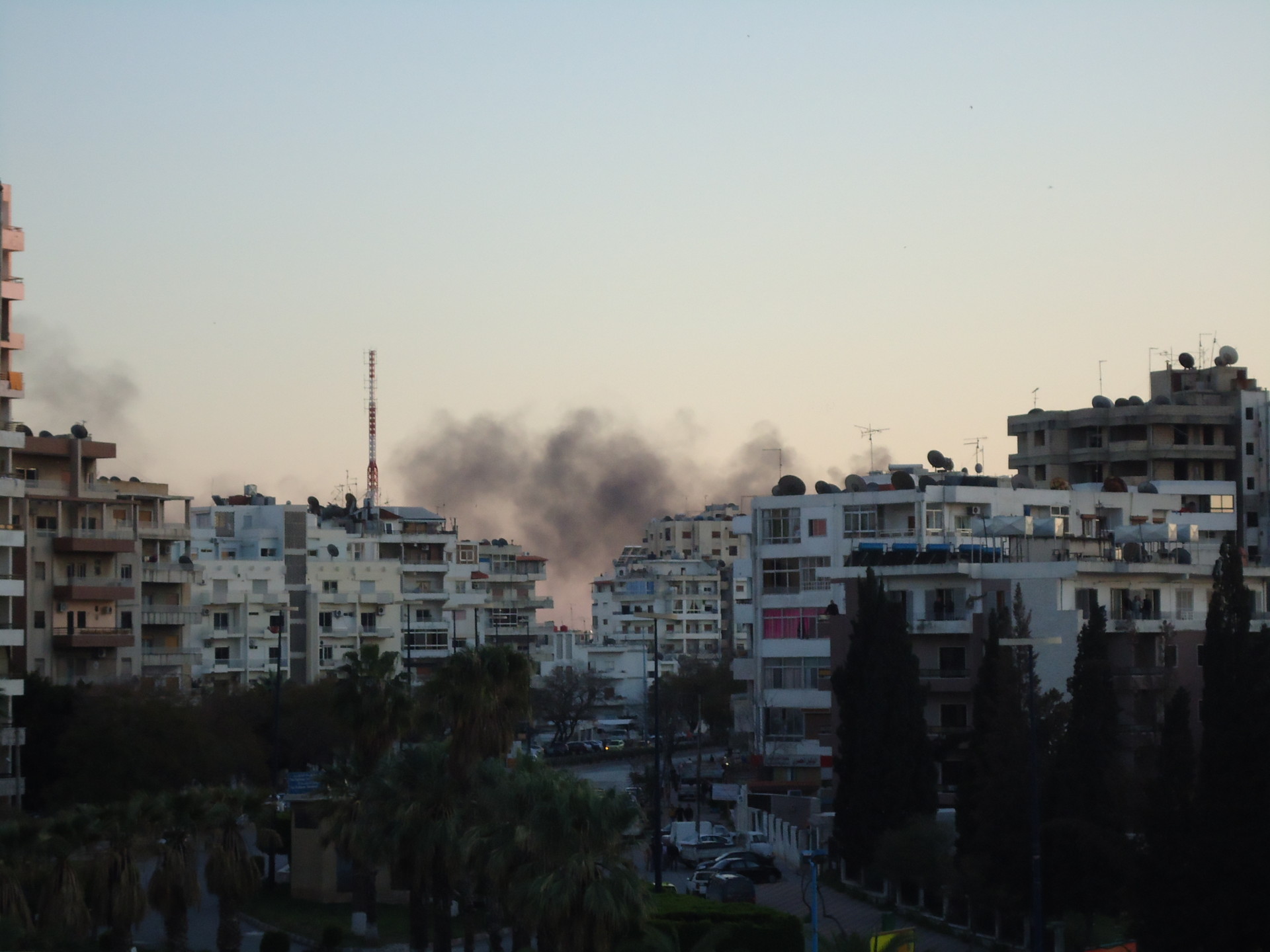
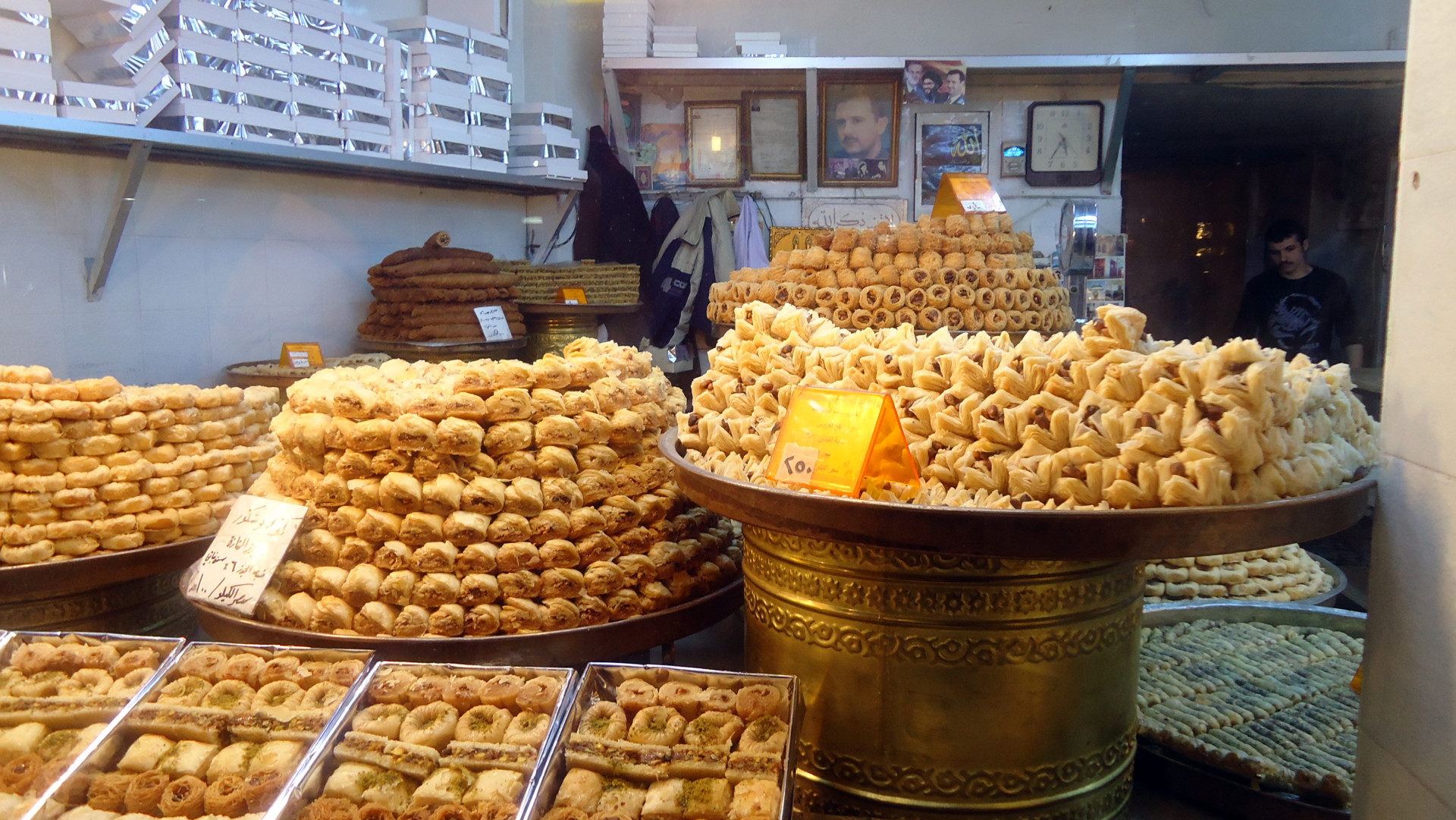
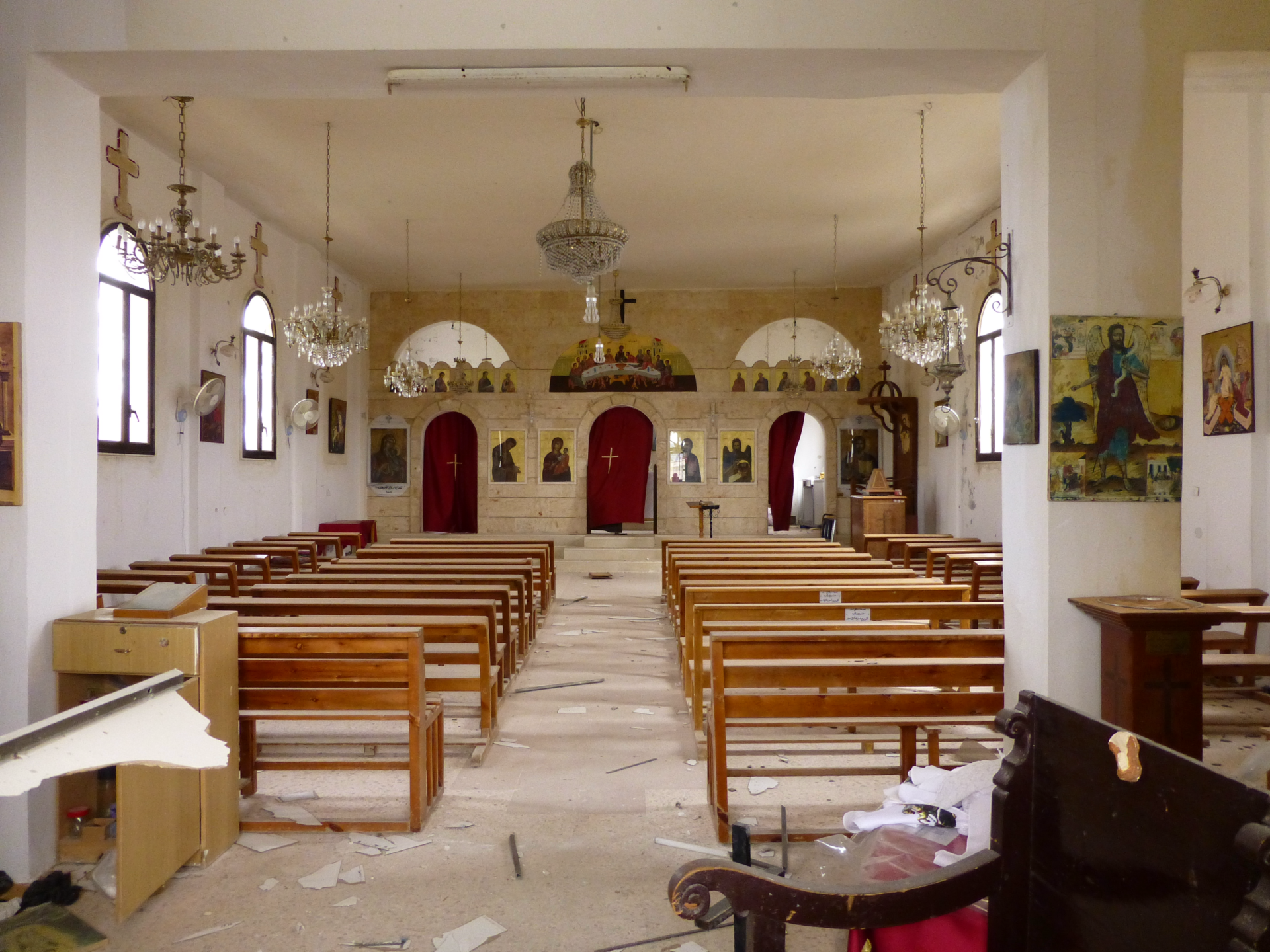
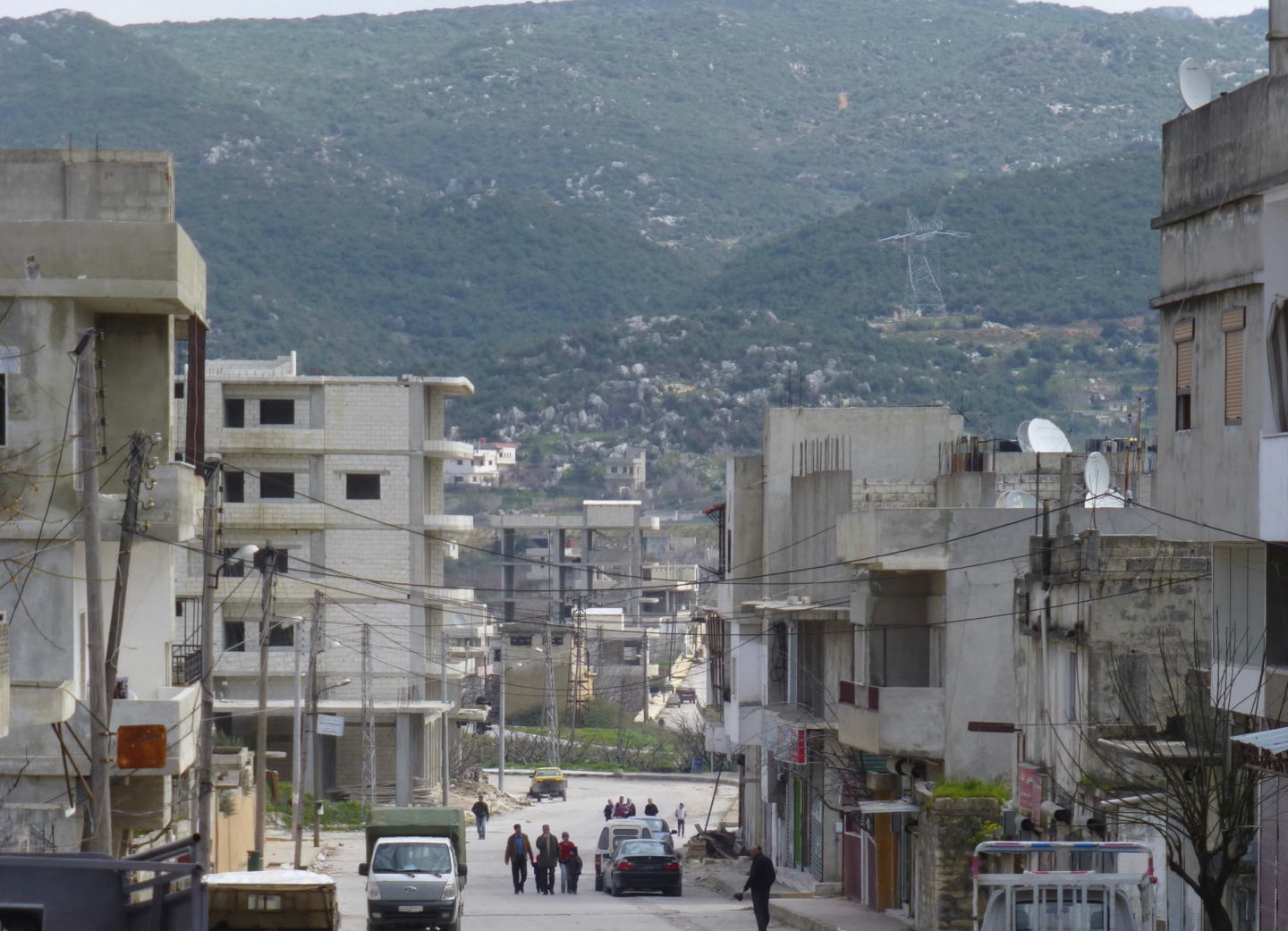
All photos taken by Sasha Ghosh-Siminoff/Newlines


